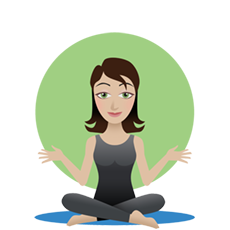Getting Organized: Getting the Right Support for You!

January is Get Organized Month!
If your family struggles with ADHD, there's a good chance you're also struggling with disorganization. Your disorganization might show up as piles of papers, cluttered rooms, losing things, running late, forgetting tasks, or never getting around to what's most important. However disorganization shows up for you, you might want to find support to help get organized -- to understand it, work through it and get past it.
How do you find the best support for you? Organizing support comes in many forms, but the ones I've found to be most beneficial for disorganized individuals are:
- working with friends or family,
- working with a professional organizer, or
- participating in a de-cluttering support group.
While one or all of these might work for you, choosing which type of support will work best depends in part on what type of disorganization you're struggling with.
Types of Disorganization & Support Options
In the world of professional organizing, disorganization is categorized as either situational or chronic.
Situational disorganization exists when a situation occurs that disrupts your normal habits and routines. Situational disorganization might arise after the birth of a baby, a change in career, or a move to a new home. Overcoming situational disorganization typically means reassessing the working systems you had in place before the life changing event, modifying them accordingly and implementing the new system.
Supports that work:
- Friends, family and professional organizers might all be helpful to you in establishing new systems and routines.
- If you're planning to work with a friend or family member, seek out someone who is both supportive and non-judgmental. Establish some ground rules and clear expectations for the process. Better to plan ahead than to damage a relationship
Chronic disorganization (CD) often goes hand in hand with ADHD. Knowing if you're chronically disorganized is important because it can influence the type of support you seek. It is defined by:
- History of disorganization that has undermined and continues to undermine the quality of one's life;
- History of failed self-help attempts at organization;
- Expectation of future disorganization.
Supports that work:
- Friends and family are probably not the best choice for support if you're chronically disorganized.
- There are professional organizers who specialize in working with chronically disorganized individuals. These professionals have learned techniques and systems particularly effective in CD and ADHD situations.
Article continues below...
Want to Go from Chaos to Calm?
Download a free tipsheet, "10 Tips for Calm & Confident Parenting." Use the coach-approach to change the tone in your home or classroom -- starting now!
De-cluttering Support Groups
The third type of support is what I call a de-cluttering support group. These groups are often run by experienced professional organizers and are sometimes called “clutter support groups.” They may meet in person, or they might be virtual, meeting online or over the phone. Some of these groups are centered around reading and discussing an organizing book, while others focus on overcoming a particular type of disorganization. There are many different formats for these groups and they can be a great place for disorganized individuals to come together, share about their disorganization, learn about ways to overcome it and get support in doing that.
How to Find Support
When looking for the right professional organizer, you may want to consider asking friends and mental health professionals for referrals. If you're beginning your search online, I highly recommend ICD's Find an Organizer Service or the National Association for Professional Organizer's Find an Organizer Directory. These organizations are dedicated to training professional organizers and assisting members of the public in locating professionals in their area.
To find a de-cluttering support group, start with an online search. You may also want to inquire at your local public library or local community college, as organizers who speak in these venues will sometimes also run these groups.
If there aren't any professional organizers in your area, there's no need to worry. There are a number of Professional Organizers like me who actually work with clients over the phone, or virtually. Yes, it can be done!
Getting Started:
The first and most important step is for you to identify what kind of disorganization you're dealing with, so that you can begin to get the best support systems in place. Acknowledging your struggle with disorganization can seem overwhelming, or even disheartening. But there is nothing more empowering than making the decision to tackle that challenge, and getting the supports in place to do something about it!
So, are you ready to get help getting organized? What's your first step from here?


